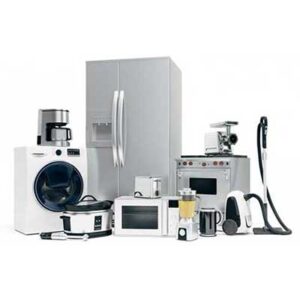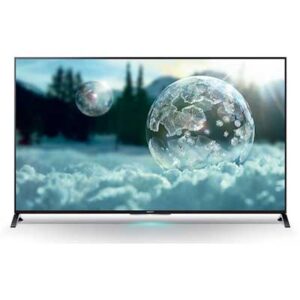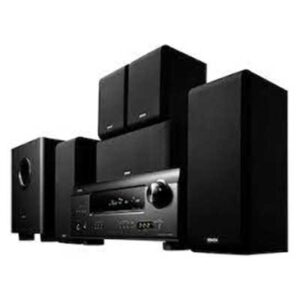No products in the cart.
Inverter Split Air Conditioner Leave a comment
Inverter Split Air Conditioner have transformed the cooling business with their energy-efficient operation and outstanding performance. Unlike traditional ACs, which continually switch on and off to maintain the correct temperature, inverter ACs maintain a steady cooling output by automatically regulating the compressor speed.
This technology not only creates a nice interior atmosphere but also saves energy and decreases power expenses. In this post, we will discuss the essential characteristics, benefits, and frequently asked questions (FAQs) concerning inverter split ACs.
How Does An Inverter Split Air Conditioner Work?
Inverter split air conditioner feature modern technologies to maximize cooling efficiency. The key component responsible for this efficiency is the inverter compressor.
Unlike the fixed-speed compressor used in typical ACs, the inverter compressor can alter its speed depending on the cooling needs. It runs at faster speeds when the room temperature is much higher than the target level and slows down once the desired temperature is attained.
This constant adjustment of the compressor speed not only enables more accurate temperature control but also decreases energy usage.
Benefits Of Inverter Split Air Conditioner
Energy Efficiency
Inverter Split AC is very energy-efficient compared to traditional ACs. By changing the compressor speed depending on the cooling demand, they minimize repeated on-off cycles, which require more power. This leads to huge energy savings and decreased electricity costs.
Comfort And Temperature Control
Inverter ACs deliver constant cooling and maintain a more stable interior temperature, giving greater comfort. They control the cooling output depending on the environmental circumstances, delivering a pleasant atmosphere without unexpected temperature swings.
Quieter Operation
Inverter Split AC runs at lower noise levels compared to conventional ACs. The lower noise level is attributable to the employment of sophisticated technologies and the lack of numerous compressor on-off cycles.
Environmentally Friendly
Inverter ACs help to environmental sustainability by lowering energy usage and greenhouse gas emissions. Their effective functioning helps preserve energy resources and minimizes the carbon imprint.
Factors To Consider Before Buying An Inverter Split Air Conditioner
Cooling Capacity
Select an AC with adequate cooling capacity depending on the size of the space. A larger cooling capacity may contribute to increased energy usage.
Energy Efficiency Rating
Check the energy efficiency rating of the AC. Look for models with higher ratings, since they are more energy-efficient and cost-effective in the long term.
Brand And Warranty
Opt for established companies that provide trustworthy items and outstanding after-sales care. Check the warranty terms and conditions to guarantee proper coverage.
Extra Features
Consider extra features such as air filtration, dehumidification, and smart connection choices according to your tastes and needs.
Installation Requirements
Evaluate the installation requirements, including the availability of adequate space for both indoor and outdoor units and access to power supply and drainage.
Installation And Maintenance Of Split Air Conditioner
Professional Installation
It is suggested to have the inverter split AC fitted by a professional technician. Proper installation provides maximum performance and eliminates possible complications.
Regular Maintenance
Follow the manufacturer’s directions for regular maintenance, including cleaning or changing filters, monitoring refrigerant levels, and cleaning the outside unit. Regular maintenance helps preserve efficiency and prolongs the lifetime of the AC.
FAQs
Can Inverter Split AC Save Energy Compared To Regular ACs?
Yes, inverter split ACs are meant to be more energy-efficient than traditional ACs. Their ability to change the compressor speed depending on cooling needs helps conserve energy by eliminating numerous on-off cycles.
Are Inverter Split ACs More Costly Than Regular ACs?
Initially, inverter split ACs may have a greater upfront cost compared to traditional ACs. However, their energy-saving advantages might lead to decreased long-term running expenses, making them a cost-effective solution in the long run.
Do Inverter Split AC Need A Stabiliser?
Most current inverter split air conditioner is built to withstand voltage swings and do not need an extra stabiliser. However, it is always essential to verify the manufacturer’s requirements to guarantee sufficient voltage protection.
Can Inverter Split ACs Be Used For Heating As Well?
Yes, many inverter split ACs come with a reverse cycle capability, enabling them to offer warmth during colder months. This function offers adaptability to the AC and removes the need for a separate heating system.
Conclusion
Inverter Split ACs provide various benefits over traditional ACs, including energy efficiency, accurate temperature control, and quieter operation. Before selecting an inverter split AC, examine elements such as cooling capacity, energy efficiency rating, brand reputation, extra features, and installation requirements.
Proper installation and frequent maintenance are needed for maximum performance. With its modern technology and eco-friendly operation, inverter split AC offers effective and pleasant cooling solutions for both home and commercial environments.
Visit our Facebook:












